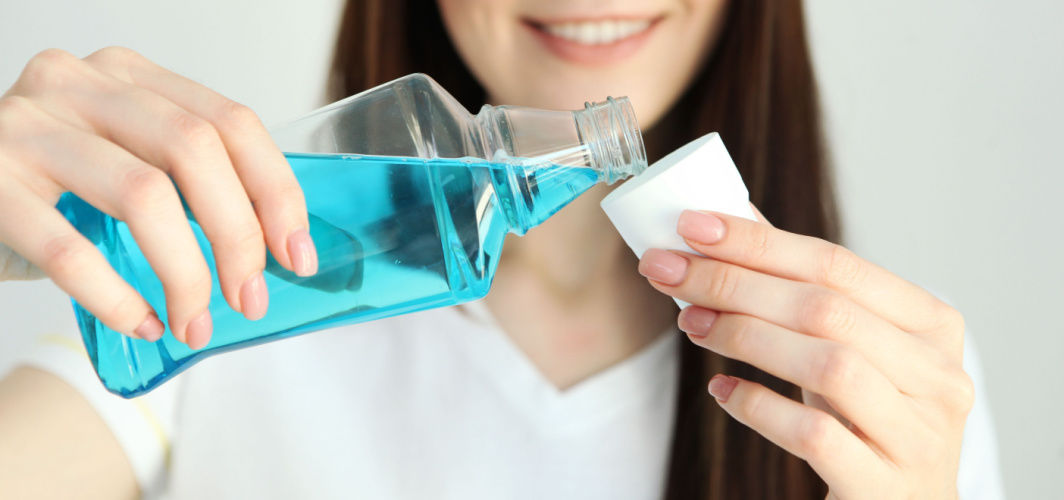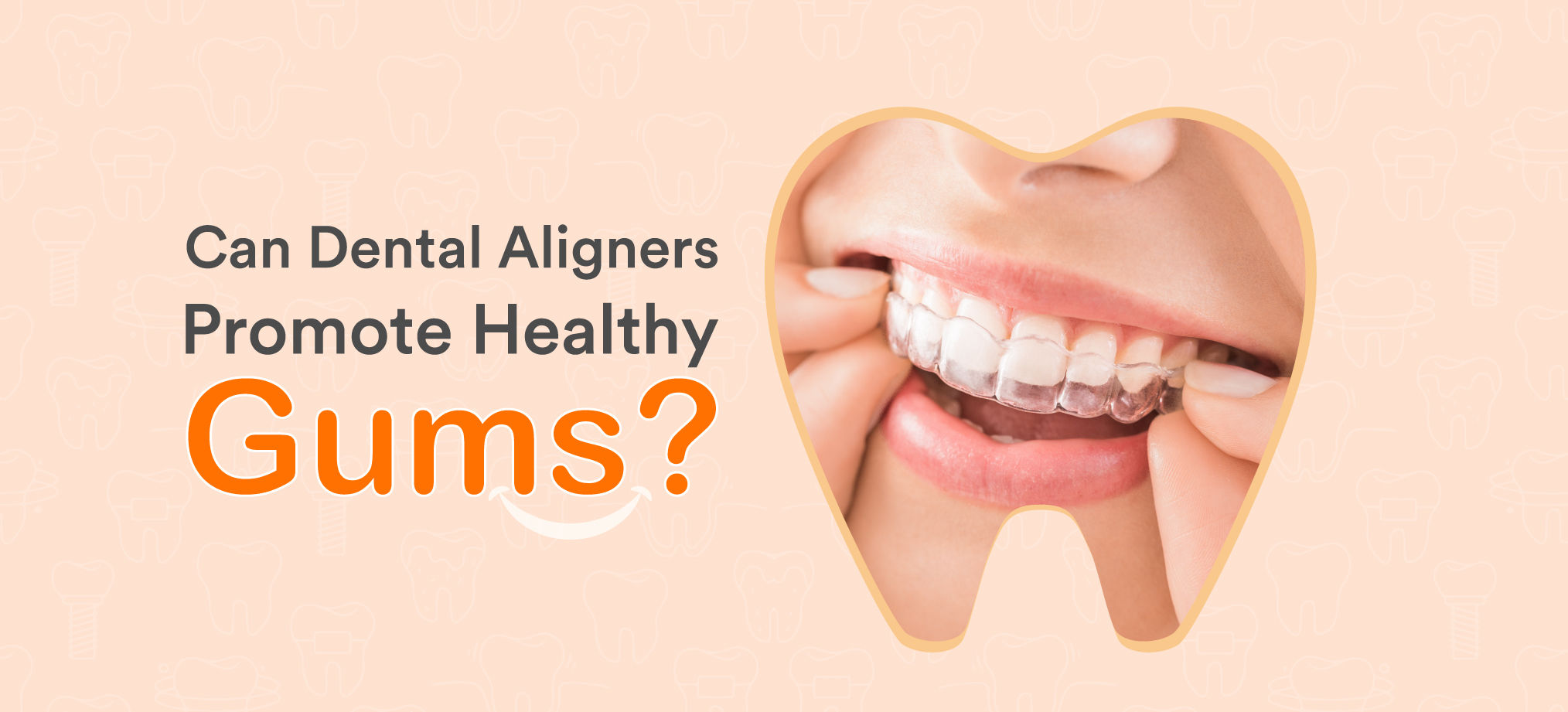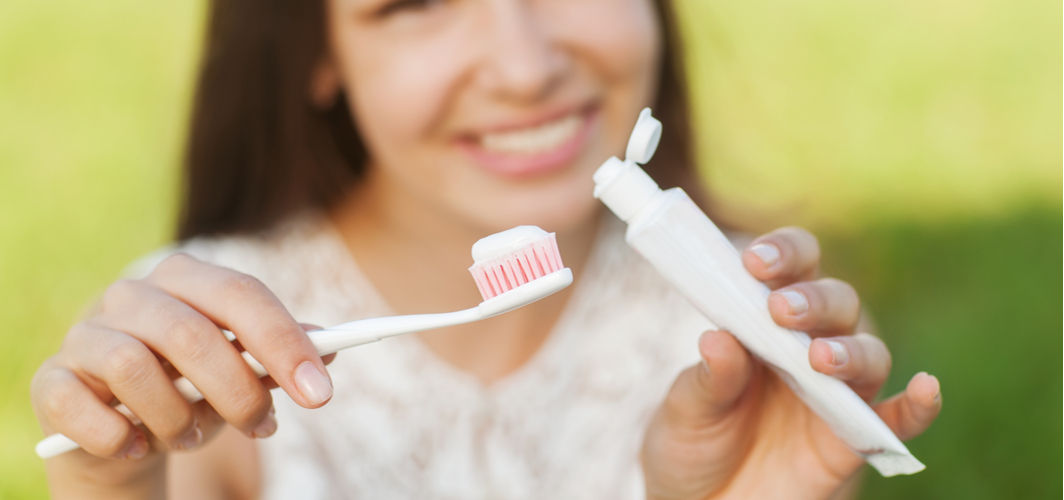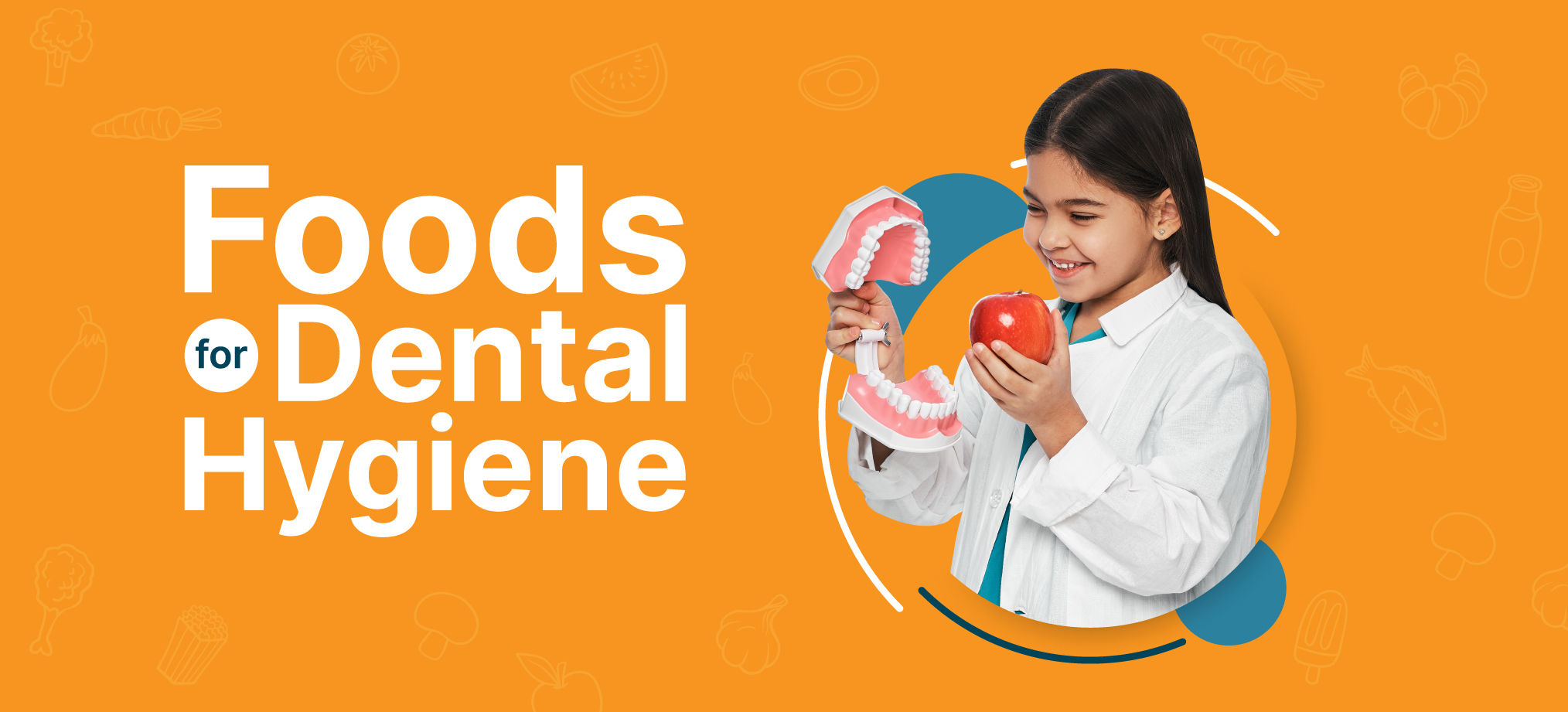Oral & Dental
How to Find the Best Mouthwash?
8 min read
By Apollo Pharmacy, Published on - 19 October 2023
Share this article
0
0 like

Maintaining good oral hygiene is crucial for overall dental health and a good mouthwash goes a long way in providing for that. Brushing your teeth twice a day and flossing regularly are essential steps, but adding mouthwash to your oral care routine can provide additional benefits. Mouthwash helps to kill bacteria, freshen breath, and prevent gum diseases like gingivitis. In this blog post, we'll help you figure out everything you need to know about mouthwashes from how to choose the best mouthwash for bad breath and the characteristics of the best mouthwash for gums to where to find the best whitening mouthwash and more.
Identifying Your Oral Health Needs
When it comes to assessing your oral health goals and concerns, there are a few key areas to focus on. Let's explore each of these areas in detail.
1. Assessing your Oral Health Goals
Some common oral health goals:
- Prevention of Cavities and Tooth Decay: Tooth decay and cavities are common dental problems that can lead to pain and discomfort if left untreated. Brushing your teeth twice a day with fluoride toothpaste, flossing daily, and having regular dental check-ups and professional cleanings are some of the ways to deal with cavities.
- Reducing Bad Odours: Bad breath can be embarrassing and may indicate underlying oral health issues. Oral hygiene practices like brushing your tongue, using an antibacterial mouthwash, and staying hydrated are some ways to combat bad breath. If bad breath persists despite these measures, it is advisable to consult a dentist.
- Maintaining Healthy Gums: Gum diseases such as gingivitis and periodontitis can lead to gum inflammation, bleeding, and even tooth loss if left untreated. To manage gum diseases and maintain healthy gums, regular brushing and flossing are essential. Also, incorporating a good mouthwash into your oral hygiene routine can help reduce bacteria that cause gum diseases.
2. Identifying any Specific Dental Conditions or Sensitivities
Recognising dental conditions or sensitives ensures prompt action and treatment. They include:
- Sensitive Teeth and Gums: If you experience discomfort or pain when consuming hot or cold foods and beverages, you may have sensitive teeth and gums. This condition occurs when the protective layer of enamel on your teeth wears down, exposing the sensitive dentin underneath. Common causes of sensitive teeth include tooth decay, gum disease, teeth grinding, and aggressive brushing.
- Dry Mouth Syndrome: Dry mouth syndrome, or xerostomia, is a condition where there is insufficient saliva production in the mouth. Saliva plays a vital role in maintaining oral health by rinsing away food particles, neutralizing acids, and preventing tooth decay. Common causes of dry mouth include medications, certain medical conditions, and dehydration.
- Orthodontic Appliances: Orthodontic appliances like braces or retainers are used to correct misaligned teeth and bite issues. While they can greatly improve your smile and oral health in the long run, wearing these appliances can sometimes cause temporary discomfort or sensitivity. Follow your orthodontist's instructions regarding food restrictions and wear times.
Types of Mouthwashes
Mouthwashes, also known as mouth rinses or oral rinses, come in various types, each designed to serve specific oral health needs. Here are common types of mouthwashes:
1. Fluoride Mouthwashes
Fluoride is a mineral that in specific dosages can help prevent tooth decay by strengthening the enamel. Using fluoride mouthwash can provide an extra layer of protection against cavities, especially for individuals who are prone to tooth decay or have weak enamel.
2. Antiseptic Mouthwashes
Antiseptic mouthwashes contain ingredients that fight bacteria and help prevent gum diseases such as gingivitis. These mouthwashes are ideal for individuals with periodontal issues or a history of gum infections.
3. Alcohol-Free Mouthwashes
Alcohol-free mouthwashes are gentle on sensitive teeth and gums. They provide similar benefits to antiseptic mouthwashes but without the stinging or burning sensation that alcohol-based mouthwashes can cause. These mouthwashes are suitable for individuals with dry mouth syndrome or alcohol sensitivities.
4. Natural and Herbal Mouthwashes
Natural and herbal mouthwashes utilize ingredients like tea tree oil, aloe vera, or mint extracts. These ingredients have antibacterial properties and can help freshen breath. However, it is important to note that natural options may have limitations in terms of their effectiveness compared to other types of mouthwashes.
Considerations When Choosing a Mouthwash
Choosing the best mouthwash is an essential part of maintaining good oral health. With so many options available in the market, it can be overwhelming to decide which one is best for you. In this section, we will discuss some important considerations when choosing a mouthwash.
1. ADA Seal of Acceptance
When shopping for mouthwash, it is crucial to look for the American Dental Association (ADA) seal on the packaging. The ADA seal indicates that the product has undergone rigorous testing and meets the highest standards of safety and effectiveness.
By choosing a mouthwash with the ADA seal, you can be confident that you are using a product that has been scientifically evaluated and proven to be beneficial for your oral health.
2. Ingredients to Look for and Avoid
It's important to pay attention to the ingredients in your mouthwash.
- Look for key ingredients such as fluoride, which helps strengthen tooth enamel and prevent tooth decay.
- Another beneficial ingredient is chlorhexidine, which can help reduce plaque and gingivitis.
- On the other hand, there are certain ingredients that you should avoid in your mouthwash. Alcohol, for example, can cause dryness and irritation in the mouth, while artificial sweeteners may contribute to tooth decay.
- Always read the label carefully to find a good mouthwash.
3. Personal Preferences and Taste
Your personal preferences and tastes also play a significant role in choosing a mouthwash. Mouthwashes come in various flavours, like:
- Mint
- Citrus
- Cinnamon
Consider your taste preference and choose a flavour that you find pleasant. This will encourage regular use and make your daily oral care routine more enjoyable.
Where to Buy Mouthwash in India
In India, mouthwash is widely available and can be purchased from various outlets, including:
1. Local Pharmacies and Drugstores
When it comes to buying mouthwash in India, local pharmacies and drugstores are the go-to options for most people. These establishments offer a wide range of mouthwash brands, catering to different oral health needs.
You can choose from a variety of the best mouthwash for bad breath, to the alcohol-free variants, to the best whitening mouthwash. It is important to check the product labels and expiration dates before making a purchase.
2. Online Retailers
With the increasing popularity of online shopping, purchasing mouthwash online has become a convenient option for many individuals. Several reliable online platforms or websites like Apollo 24|7. They offer a wide variety of mouthwash brands, providing the ease of doorstep delivery.
When buying mouthwash online, consider choosing reputable sellers or platforms that have positive customer reviews. This ensures that you receive genuine products that meet quality standards. It is also advisable to compare prices and look for any ongoing discounts or offers before making a purchase.
3. Dental Clinics and Oral Care Centers
For personalized recommendations and specialized mouthwashes not commonly found in retail stores, visiting dental clinics and oral care centres is an excellent option.
Additionally, dental clinics may have exclusive access to professional-grade mouthwashes - which can serve as the best mouthwash for gums, best whitening mouthwash and best mouthwash for bad breath as they are more potent than over-the-counter options.
Tips for Proper Usage and Best Results
Some tips for proper usage and best results are:
- Using mouthwash as part of your daily oral hygiene routine can significantly contribute to the health of your teeth and gums.
- To ensure optimal effectiveness, it is essential to follow the manufacturer's instructions provided on the mouthwash bottle. These instructions typically include the recommended dosage and duration for rinsing.
- Incorporating mouthwash into your oral care routine is easy and involves hardly 5 minutes every day.
- However, it is important to remember that the use of mouthwash should not replace proper brushing and flossing.
- Moreover, regular dental check-ups, a balanced diet, and limiting sugary foods and drinks, must complement the use of mouthwash.
Conclusion
In conclusion, it can be said that choosing the right mouthwash for your individual oral health needs is crucial. Certain mouthwashes may be specifically formulated for sensitive teeth or periodontal disease. Therefore, consulting with dental professionals is recommended to receive personalized recommendations based on your unique oral health requirements. Maintaining good oral hygiene is not only essential for healthy teeth and gums but also for overall health and well-being. Research has linked poor oral health to various systemic conditions like heart disease and diabetes. By incorporating mouthwash into your daily routine and adopting other oral care practices, you can promote a healthier smile and improve your overall quality of life.
FAQs
Q. Are mouthwashes necessary for good oral health?
Using mouthwash is not essential for maintaining good oral health, but it can be a valuable addition to your oral care routine. Mouthwashes can help kill bacteria, freshen your breath, and provide additional protection against tooth decay and gum disease.
Q. What are some common ingredients of mouthwashes?
Some common ingredients in mouthwashes are antiseptic ingredients like chlorhexidine or cetylpyridinium chloride which kill bacteria in the mouth, and fluoride.
Q. Can mouthwash replace brushing and flossing?
No, mouthwash cannot replace brushing and flossing. Regular brushing twice a day and flossing once a day are crucial for effectively removing plaque and food particles from your teeth and gums.
Q. Are all mouthwashes the same?
No, there are different types of mouthwashes - some are designed for cosmetic purposes, such as freshening breath, while others have therapeutic properties for treating specific dental conditions like gingivitis or dry mouth.
Q. Are there any side effects of using mouthwash?
Some people may experience temporary side effects like a burning sensation or dry mouth after using certain types of mouthwashes.
Oral & Dental
Consult Top Dentists
View AllLeave Comment
Recommended for you

Oral & Dental
5 Reasons To Why Should You Go For Dental Aligners
Misalignment and improper positioning of teeth can result in several dental health issues like gum diseases, tooth decay, and bad breath. The best solution for crooked or crowded teeth is getting dental aligners. These aligners serve as an effective and painless means of straightening your teeth.

Oral & Dental
Oral Hygiene Day 2022: Importance of oral hygiene and how to maintain it
Every year, 1st August is observed as Oral Hygiene Day in India. The day aims at spreading awareness about the importance of maintaining oral hygiene.

Oral & Dental
Foods to Keep Your Teeth and Gums Healthy
Consuming a balanced diet comprising fruits, vegetables, whole grains, dairy products, and protein foods can provide essential nutrients for overall health as well as oral health.
Subscribe
Sign up for our free Health Library Daily Newsletter
Get doctor-approved health tips, news, and more.
Recommended for you

Oral & Dental
5 Reasons To Why Should You Go For Dental Aligners
Misalignment and improper positioning of teeth can result in several dental health issues like gum diseases, tooth decay, and bad breath. The best solution for crooked or crowded teeth is getting dental aligners. These aligners serve as an effective and painless means of straightening your teeth.

Oral & Dental
Oral Hygiene Day 2022: Importance of oral hygiene and how to maintain it
Every year, 1st August is observed as Oral Hygiene Day in India. The day aims at spreading awareness about the importance of maintaining oral hygiene.

Oral & Dental
Foods to Keep Your Teeth and Gums Healthy
Consuming a balanced diet comprising fruits, vegetables, whole grains, dairy products, and protein foods can provide essential nutrients for overall health as well as oral health.


